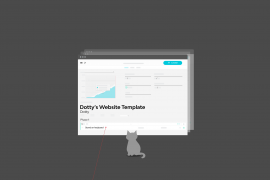In our second blog in our Comprehensive Guide to Productive To Do Lists and Streamtime, guest blogger Mat Groom explores just how important a sense of productivity is to the human condition.
Last time, we talked about how our brains subconsciously yearn for to-do lists, so we can feel secure in our productivity. But why are we so productivity-obsessed in the first place? The obvious answer, of course, is that people like money (or other tangible fruits-of-labour), so they like making progress towards obtaining it.
But according to behavioural economist Dan Ariely, that might not be the right answer. In a study conducted by his team, people were given small sets of Lego to build for a small financial reward – and when they returned the completed Lego, they were offered the chance to do the same again for a slightly smaller payment.
One group of participants was told the Lego sets they were building would be disassembled for use by new participants the following day. But the second group of participants saw the Lego sets they returned disassembled before their eyes… and if they volunteered to build another set, they were given a set they had previously built (and watched be dismantled).
They found that the first group continued building sets much longer (stopping after building 11 Lego sets on average, compared to the second group’s 7) – despite having the exact same financial incentive.
No regrets like regression.
Ariely’s argument is that humans require a sense of progress and achievement to remain motivated – and that need extends beyond the rational. In the experiment we just mentioned, both groups knew the Lego sets would be disassembled in the near future. What was actually being achieved was the same in both cases – but seeing their work undone was much worse for their motivation than just knowing conceptually that it would happen.
As it turns out, humans have known for a very long time that denying a person a sense of progress is a particularly successful source of torture. In Greek myth, the Gods punished Sisyphus (King of Ephyra) for his hubris and trickery by making him push a huge boulder up a steep hill, only to watch it tumble back down to the bottom… where he’d then have to start pushing it back up the hill, in an endless cycle for all of eternity.
Unfortunately, this form of punishment isn’t restricted to the realms of fiction. When the Nazis occupied Greece during World War II, they established a massive prison – the Haidari concentration camp. While most prisoners of the camp were eventually moved onto other Nazi facilities, while there they faced a cruel fate – on every day except Sunday, the prisoners were put to labour – asked to dig holes and build walls, and then (you guessed it) fill the holes and destroy the walls. There was no productive purpose to the labour – but the Nazis knew how effective such treatment is at breaking morale.
Up, up is the way.
Depressing things to contemplate, to be sure, but there is an upside – the confirmation of how rewarding a sense of accomplishment can be in and of itself, outside of the tangible benefits of your achievement. Which explains a lot – like why mountain climbers will endure a miserable, painful, life-threatening ordeal to reach the pinnacles of massive piles of dirt and rock… and then want to do it again afterwards.
You don’t have to scale Everest to feel this effect, though – you’ll appreciate furniture you built yourself more than pre-assembled furniture (even if the furniture you built was from IKEA), and you’ll enjoy food you grew yourself more than food you bought. All things being equal, it’s the feel of achievement and progress that’s important.
In our next blog, we’ll look at ways you can help your team achieve some of those productivity-induced warm-and-fuzzies. Or, feel free to explore our comprehensive guide to productive lists yourself.
Mat Groom is Storyteller at For The People Agency.







